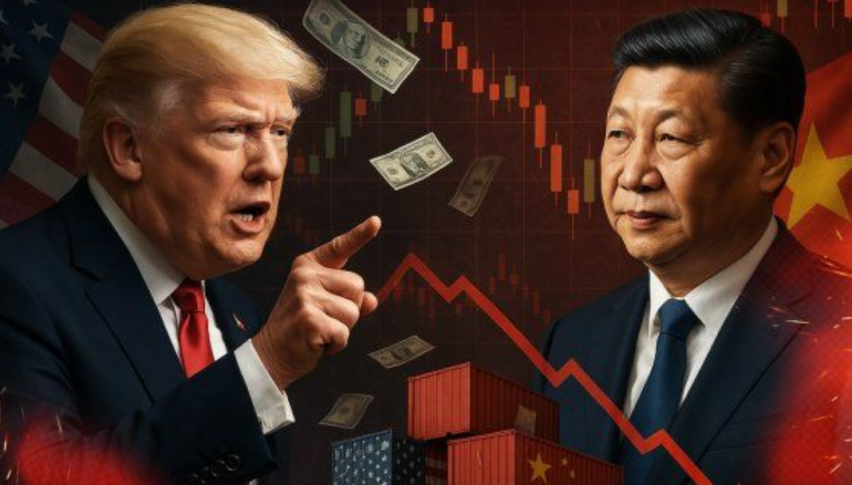WTO Says U.S. Tariffs Caused “Unprecedented” Disruption to Global Trade
WTO Director-General Ngozi Okonjo-Iweala told reporters on Tuesday that trade flows governed by the organization’s rules have fallen to 72%.

Quick overview
- The WTO reports a more than 70% decline in global trade conducted under its rules, marking an unprecedented disruption in 80 years.
- WTO Director-General Ngozi Okonjo-Iweala attributes this decline to U.S. tariffs, which have significantly impacted international trade norms.
- Brazil is considering retaliatory measures against U.S. tariffs, including potential tariffs or sanctions, signaling a shift in trade relations.
- The share of global trade under the WTO's Most Favored Nation principle has dropped from about 80% to just over 70% since the introduction of these tariffs.
The scale of global trade conducted under WTO rules has dropped by more than 70%, a decline the organization calls unprecedented in the last 80 years.

The World Trade Organization (WTO) warned that U.S. tariffs have caused a historic disruption of international trade norms. WTO Director-General Ngozi Okonjo-Iweala told Reuters on Tuesday that trade flows governed by the organization’s rules have fallen to 72% of global commerce—and could slide further.
“We are witnessing the greatest disruption to global trade rules in the last 80 years,” she said in an interview marking the start of her second term leading the Geneva-based trade watchdog. “It’s not surprising that some are questioning the predictability of the global trading system.”
The downturn accelerated after former U.S. President Donald Trump introduced sweeping tariffs. Since then, the share of global trade conducted under the WTO’s Most Favored Nation (MFN) principle—which requires members to extend equal treatment to all trading partners—has dropped from about 80% to just over 70%.
Brazil Considers Countermeasures Against U.S. Tariffs
In response, Brazil is weighing commercial retaliation against the United States after Trump’s administration imposed a 50% tariff on Brazilian imports. For the first time, President Luiz Inácio Lula da Silva’s government has instructed the Foreign Ministry to explore reciprocal measures, including tariffs or other sanctions, marking a potential turning point in bilateral trade relations.
Sources at Brazil’s Ministry of Foreign Affairs (Itamaraty) confirmed to international media that Foreign Minister Mauro Vieira has directed the country’s Foreign Trade Chamber (Camex) to study the feasibility of invoking a local reciprocity law against the U.S.
- Check out our free forex signals
- Follow the top economic events on FX Leaders economic calendar
- Trade better, discover more Forex Trading Strategies
- Open a FREE Trading Account